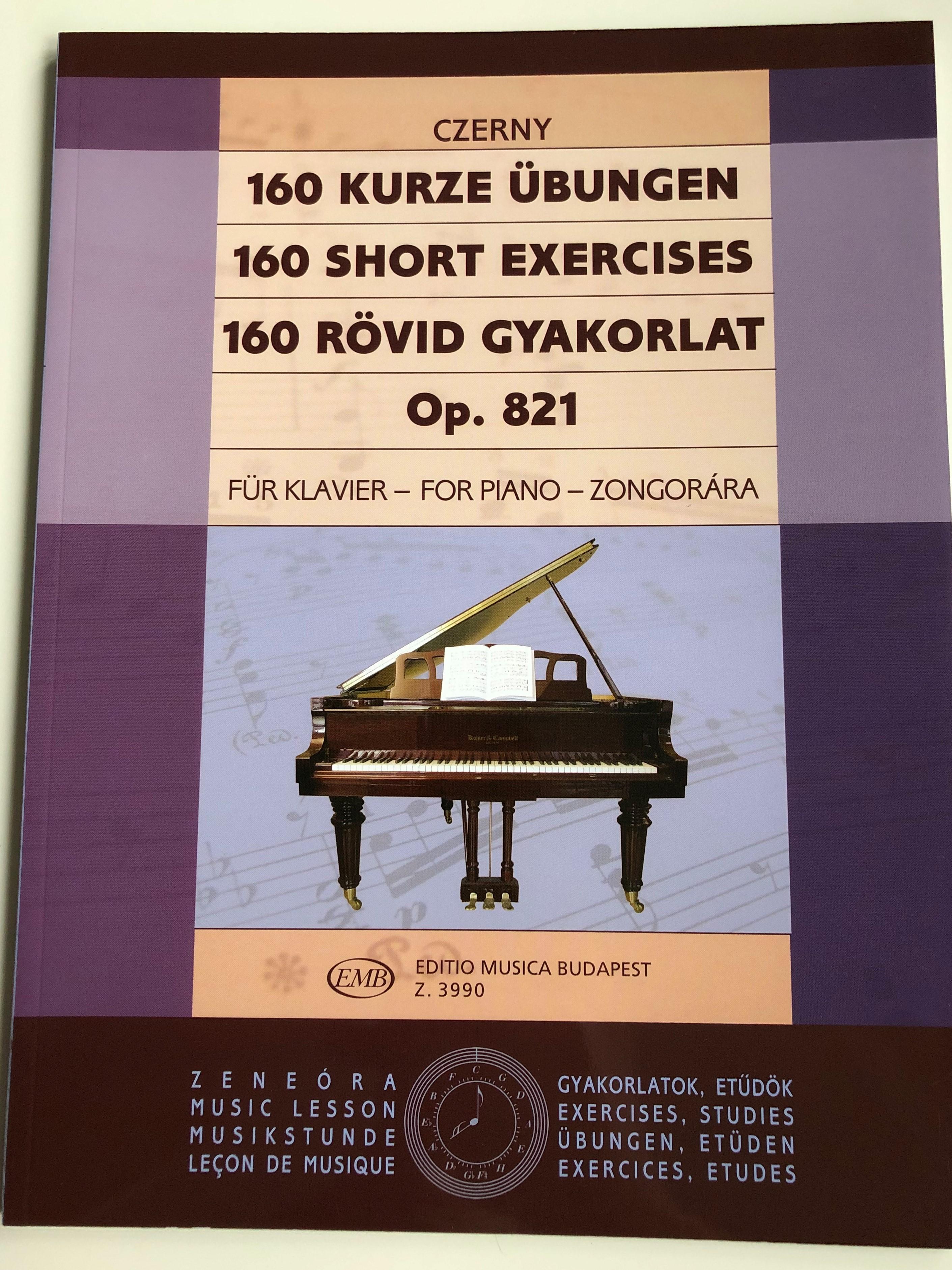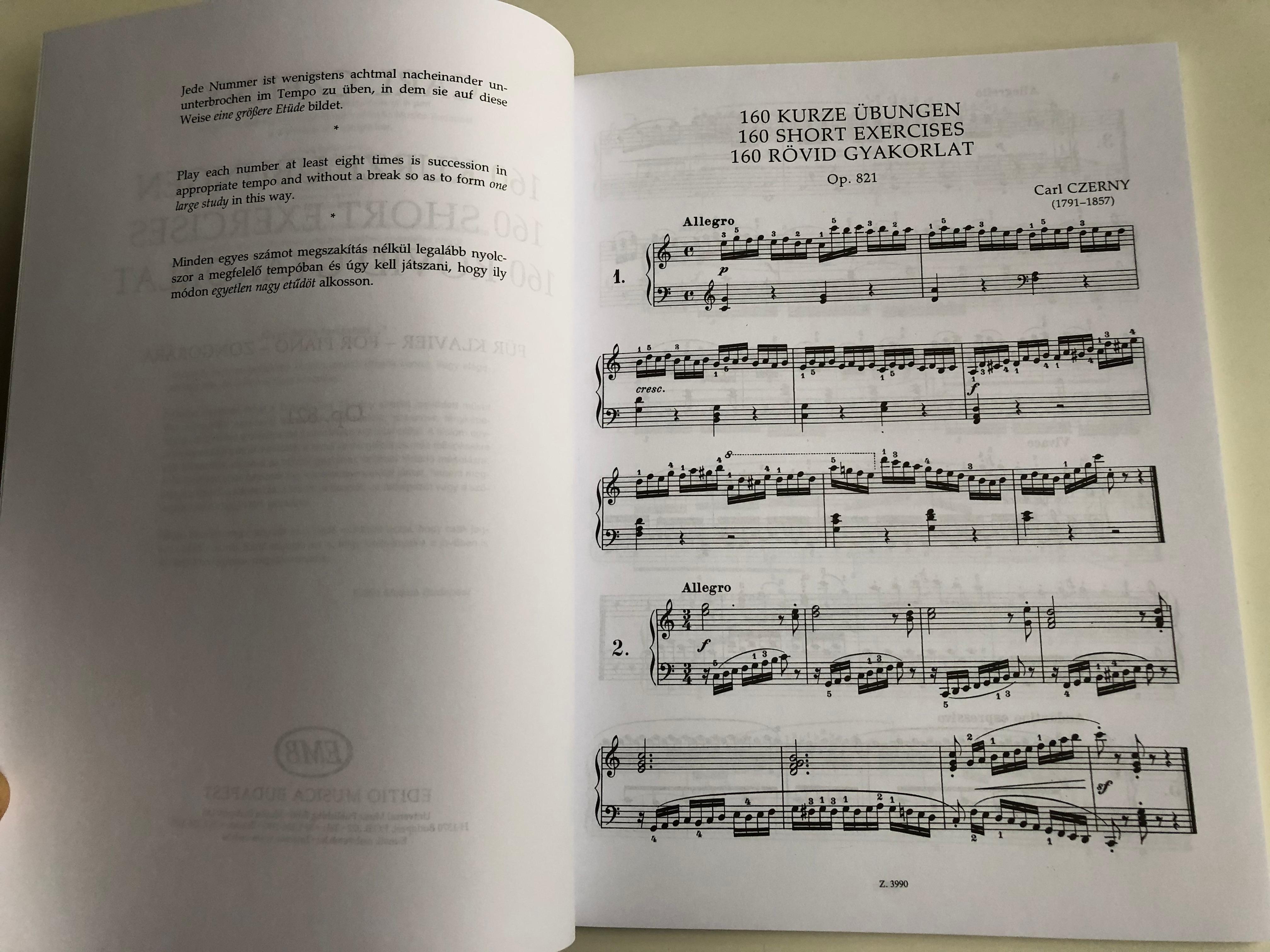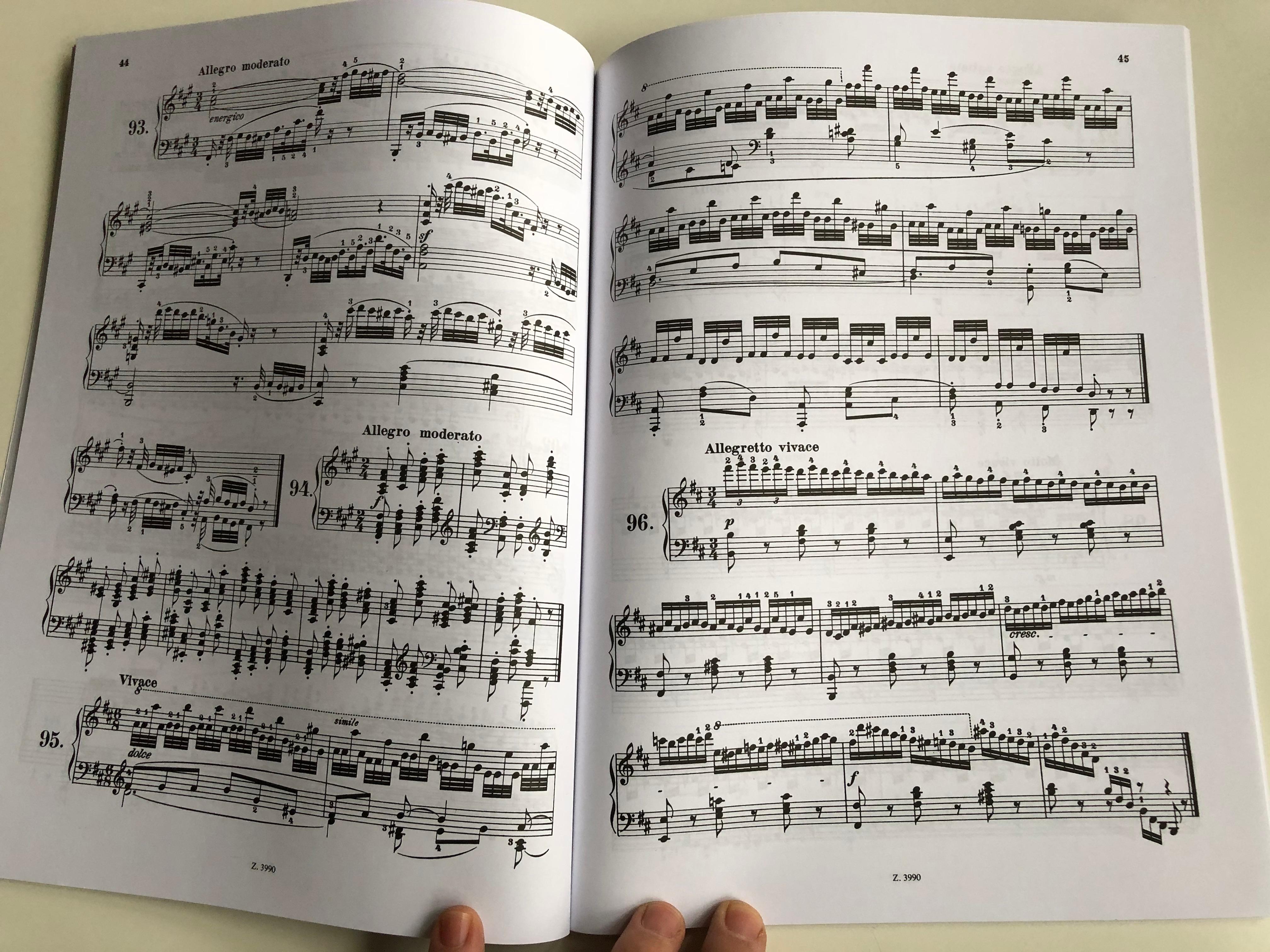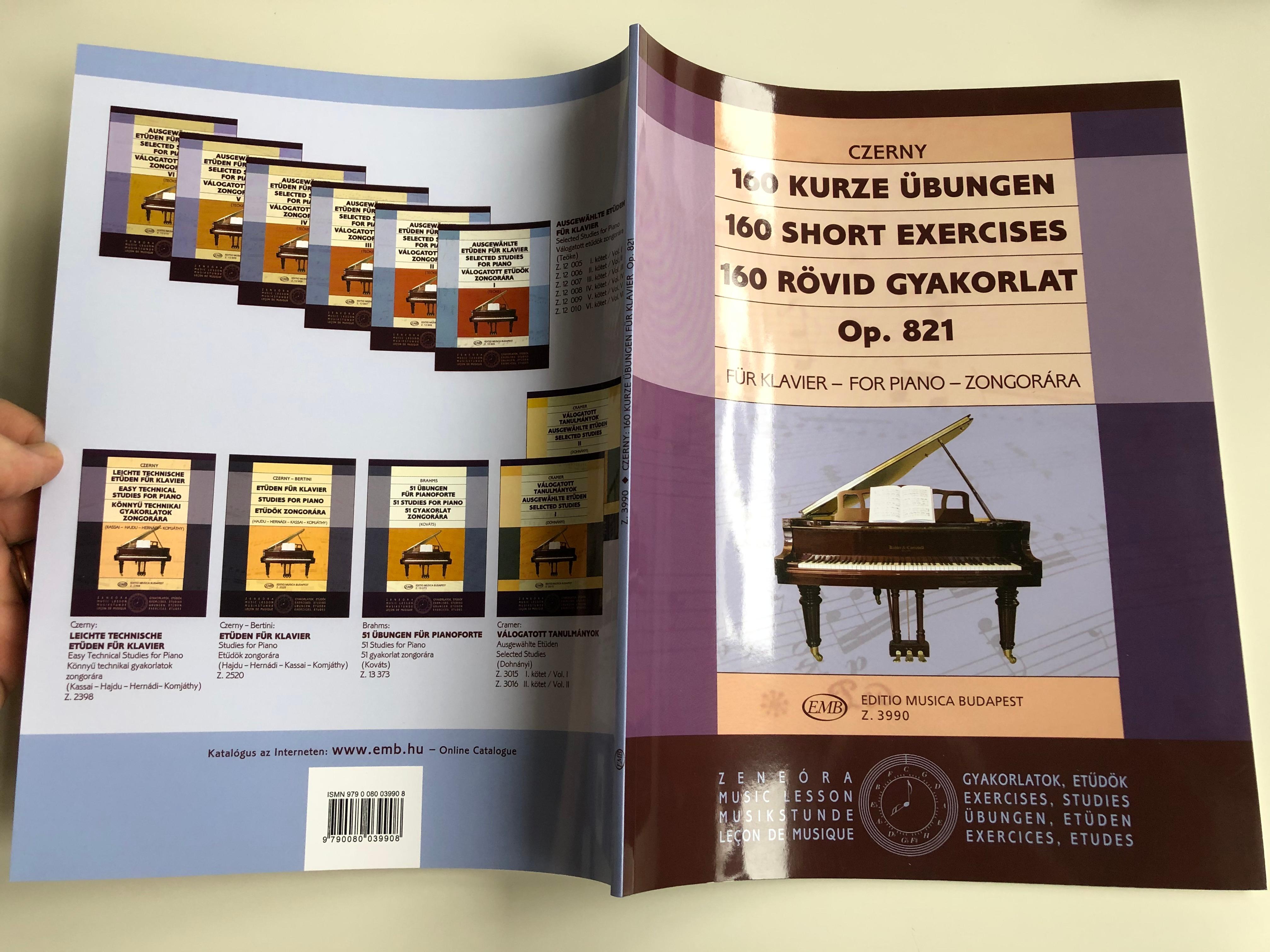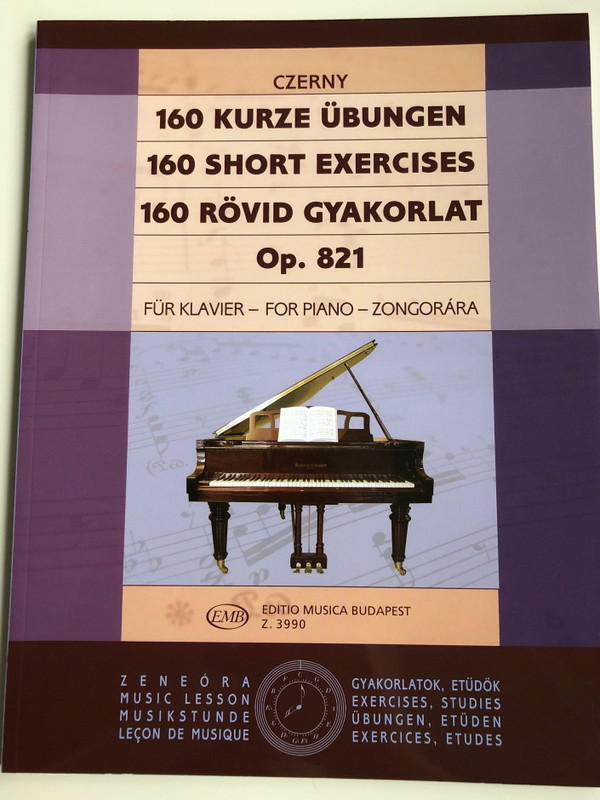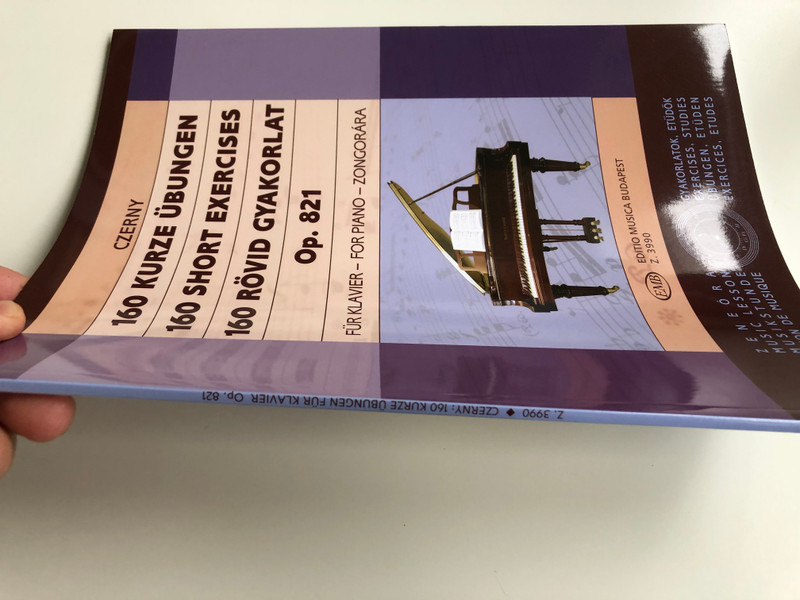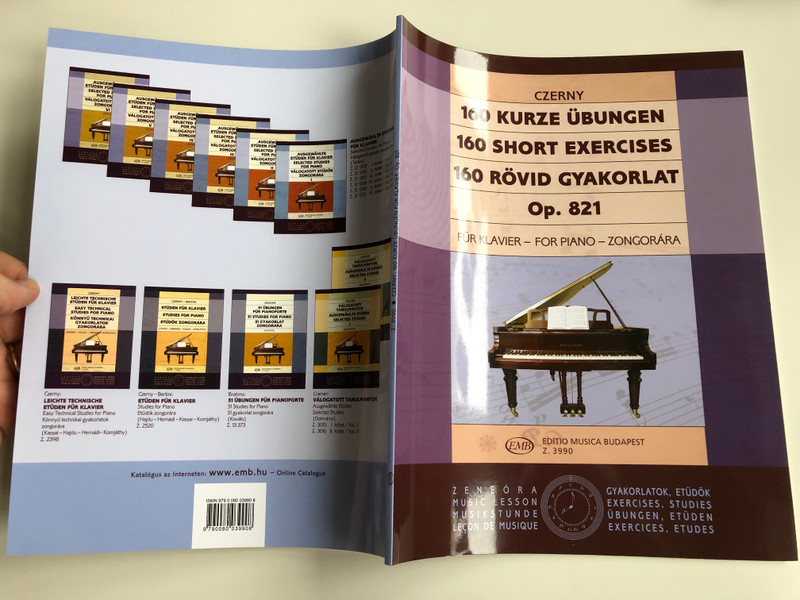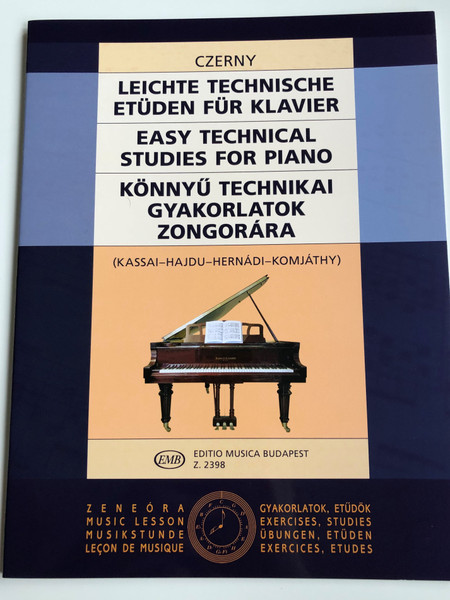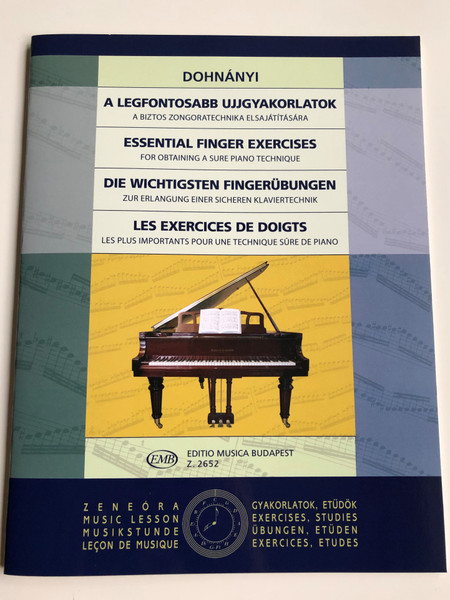Description
Carl Czerny – 160 Short Exercises for Piano – 160 Rövid gyakorlat zongorára Op. 821 – 160 Kurze Übungen für Klavier
Editio Musica Budapest, 2015 | Z.3990
Product Details | Termékadatok
- Format: Paperback | Kötés: Puhatáblás
- Publication Year: 2015 | Kiadás éve: 2015
- Pages: 77 | Oldalszám: 77
- ISMN: 9790080039908
- Publisher: Editio Musica Budapest Zeneműkiadó | Kiadó: Editio Musica Budapest Zeneműkiadó
- Language: Hungarian – English – German (parallel edition) | Nyelv: Magyar – Angol – Német (párhuzamos kiadás)
Overview | Áttekintés
Carl Czerny’s "160 Short Exercises for Piano" (Op. 821) is an essential collection for pianists of all levels. These concise yet effective technical exercises are designed to improve finger dexterity, precision, and articulation. The short format of each exercise allows for focused practice, making them perfect for daily warm-ups or skill development.
This trilingual edition (Hungarian – English – German) by Editio Musica Budapest ensures accessibility for a wide range of musicians and piano educators. The collection serves as a bridge between beginner and intermediate technical studies, preparing students for more advanced piano repertoire.
Carl Czerny „160 Rövid gyakorlat zongorára” (Op. 821) című műve minden zongorista számára nélkülözhetetlen. Ezek a tömör, de hatékony technikai gyakorlatok az ujjak ügyességét, precizitását és artikulációját fejlesztik. A rövid gyakorlatok lehetővé teszik a koncentrált tanulást, így kiválóan alkalmasak mindennapi bemelegítésre és készségfejlesztésre.
Az Editio Musica Budapest kiadásában megjelent magyar, angol és német nyelvű párhuzamos szövegezésű kiadás széles körben hozzáférhetővé teszi a kötetet a zongoristák és pedagógusok számára. Ez a gyűjtemény átmenetet képez a kezdő és középhaladó technikai tanulmányok között, és előkészíti a növendékeket a haladó zongorairodalomra.
Product Features | Kiemelt Jellemzők
✔ 160 concise exercises designed for improving dexterity and precision
✔ Ideal for daily practice and technical development
✔ Perfect for piano students and self-learners progressing to intermediate repertoire
✔ Parallel text in Hungarian, English, and German for international accessibility
✔ Published by Editio Musica Budapest, a leading sheet music publisher
✔ 160 tömör gyakorlat, amely segíti az ujjak ügyességének és precizitásának fejlesztését
✔ Ideális napi gyakorlásra és technikai fejlődésre
✔ Kiváló zongoratanulóknak és önálló gyakorlóknak, akik középhaladó repertoárra készülnek
✔ Magyar, angol és német nyelvű párhuzamos szövegezéssel a nemzetközi elérhetőség érdekében
✔ Editio Musica Budapest kiadásában, amely a kottaipar egyik vezető kiadója
Interesting Facts | Érdekes Tények
Carl Czerny’s Legacy: Czerny (1791–1857) was a student of Beethoven and the teacher of Liszt, making his technical studies a vital part of classical piano training.
Op. 821’s Purpose: These exercises were created to develop control, articulation, and evenness in finger technique, helping pianists play more complex compositions with ease.
A Classic in Piano Education: Czerny’s études and exercises remain a cornerstone of piano pedagogy worldwide, used by teachers and students alike.
Historical Significance: Czerny’s teaching methods laid the foundation for modern piano technique and continue to influence musicians to this day.
Carl Czerny öröksége: Czerny (1791–1857) Beethoven tanítványa és Liszt Ferenc mestere volt, így technikai tanulmányai a klasszikus zongoraképzés alapvető részét képezik.
Az Op. 821 célja: Ezeket a gyakorlatokat az irányítás, az artikuláció és az ujjak egyenletes technikájának fejlesztésére hozta létre, hogy a zongoristák könnyebben játszhassanak bonyolultabb darabokat.
A zongoraoktatás klasszikusa: Czerny etűdjei és gyakorlatai világszerte a zongorapedagógia alappillérei, amelyeket tanárok és növendékek egyaránt alkalmaznak.
Történelmi jelentőség: Czerny tanítási módszerei megalapozták a modern zongoratechnikát, és a mai napig hatással vannak a zenészek fejlődésére.
Publisher Information | Kiadói Információk
Published by Editio Musica Budapest Zeneműkiadó in 2015. All rights reserved under ISMN 9790080039908.
Kiadta az Editio Musica Budapest Zeneműkiadó 2015-ben. Minden jog fenntartva. ISMN: 9790080039908.
We value your feedback! | ? Örömmel fogadjuk véleményét!
Have you used Czerny’s 160 Short Exercises for Piano? Share your thoughts and help other musicians enhance their practice!
Használta már Czerny 160 Rövid gyakorlat zongorára című művét? Ossza meg véleményét, és segítsen más zenészeknek a fejlődésben!
Hashtags | Címkék
English:
#PianoExercises #CzernyOp821 #PianoTechnique #SheetMusic #DailyPractice #ClassicalPiano #MusicEducation #EditioMusicaBudapest
Hungarian – Magyar:
#Zongoragyakorlatok #CzernyOp821 #Zongoratechnika #Kotta #NapiGyakorlat #KlasszikusZongora #ZeneiOktatás #EditioMusicaBudapest
